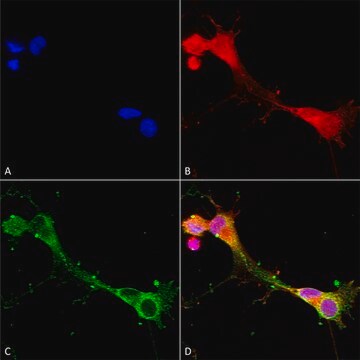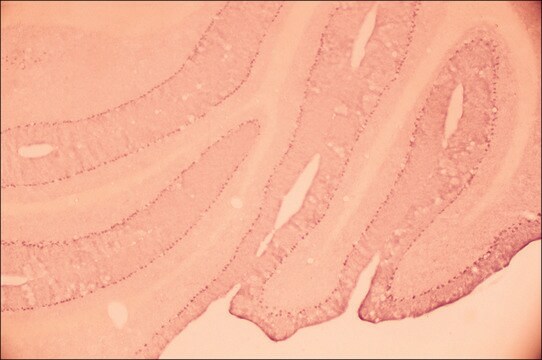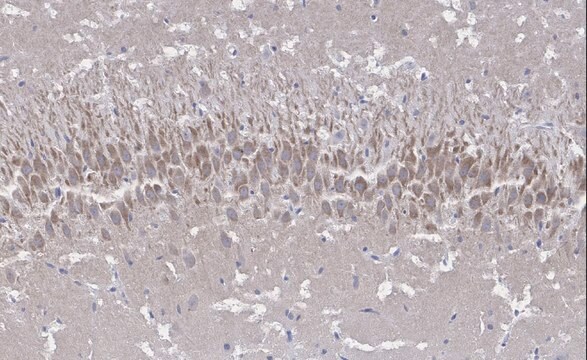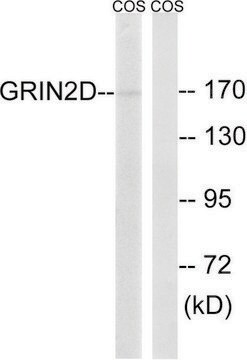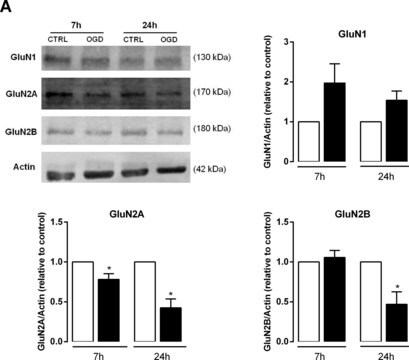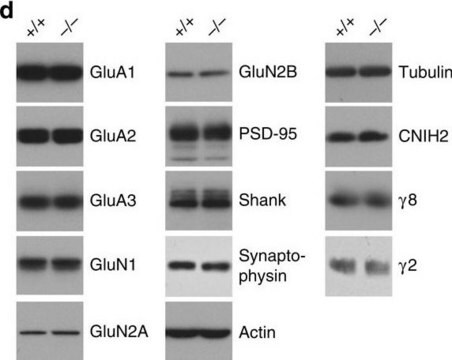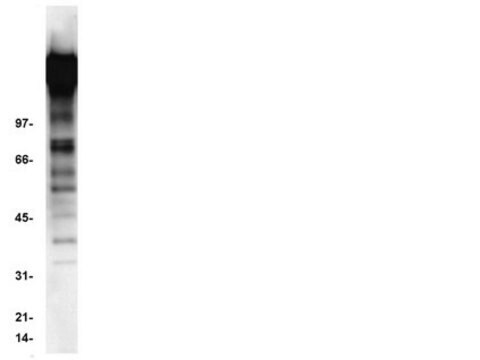M264
Anti-Glutamate Receptor NMDAR2A (NR2A) antibody produced in rabbit
affinity isolated antibody, lyophilized powder
Synonym(s):
NR2A Antibody - Anti-Glutamate Receptor NMDAR2A (NR2A) antibody produced in rabbit, Nr2A Antibody
About This Item
Recommended Products
biological source
rabbit
Quality Level
conjugate
unconjugated
antibody form
affinity isolated antibody
antibody product type
primary antibodies
clone
polyclonal
form
lyophilized powder
mol wt
antigen 180 kDa
species reactivity
rat, mouse, human
technique(s)
immunohistochemistry: 1:1,000-1:2,000
immunoprecipitation (IP): 3 μL using 200 μg of rat brain
western blot: 1:1,000
UniProt accession no.
storage temp.
−20°C
target post-translational modification
unmodified
Gene Information
human ... GRIN2A(2903)
mouse ... Grin2a(14811)
rat ... Grin2a(24409)
General description
Immunogen
Application
Western Blotting (1 paper)
Physical form
Disclaimer
Not finding the right product?
Try our Product Selector Tool.
recommended
Storage Class Code
11 - Combustible Solids
WGK
WGK 2
Flash Point(F)
Not applicable
Flash Point(C)
Not applicable
Personal Protective Equipment
Certificates of Analysis (COA)
Search for Certificates of Analysis (COA) by entering the products Lot/Batch Number. Lot and Batch Numbers can be found on a product’s label following the words ‘Lot’ or ‘Batch’.
Already Own This Product?
Find documentation for the products that you have recently purchased in the Document Library.
Our team of scientists has experience in all areas of research including Life Science, Material Science, Chemical Synthesis, Chromatography, Analytical and many others.
Contact Technical Service